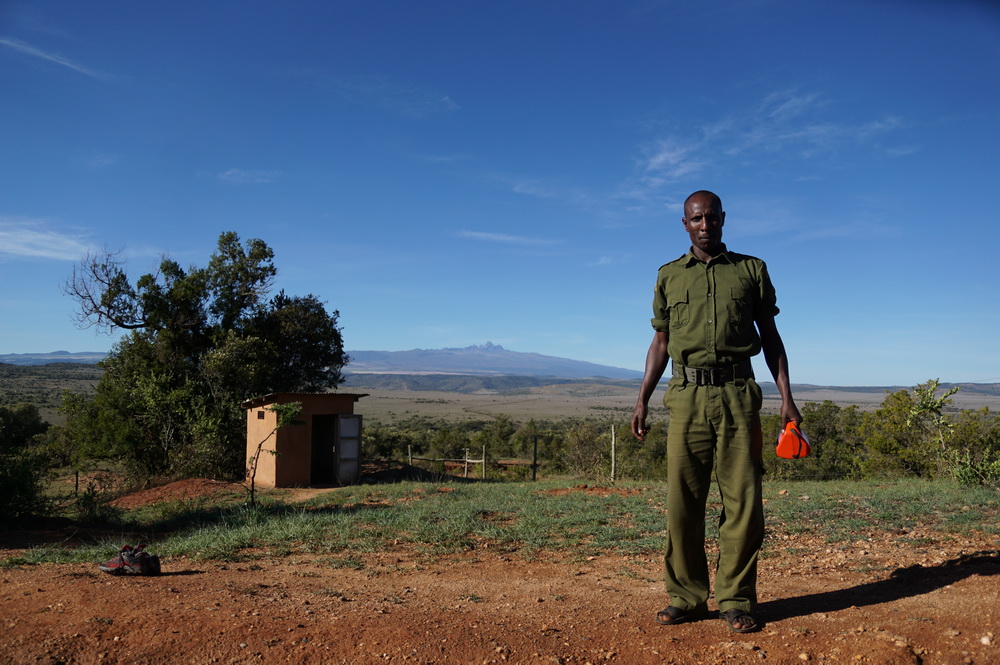The complex problems behind wildlife poaching are well known and publicised; however the human cost has not been communicated with the same urgency. Every year, more than 100 wildlife rangers are killed by poachers. With over a thousand rangers killed in the last decade, their casualties are comparable to British forces’ losses in both Iraq and Afghanistan.
ForRangers is an initiative set up to support and improve the lives of wildlife rangers in Africa. The founders of the initiative – Pete Newland and Sam Taylor – have much experience training rangers in outdoor survival, conservation, anti-poaching and general life skills. While doing this, they saw first-hand not only the danger that they face from armed poachers, but also that rangers often have to do so with inadequate equipment or living conditions. Three years ago, Pete and Sam began ForRangers and set out to give rangers in sub-Saharan Africa more support, primarily by raising funds through extreme endurance events, including taking on one of the world’s toughest ultra-marathons, the Marathon de Sables.
We’ve teamed up with Sam and Pete on many occasions since they started, raising funds not only for essential kit items such as new uniforms and boots, but also for other things that really improve living standards and thereby morale. This year, we held our first ever ultra-marathon (the ForRangers Ultra) in partnership with ForRangers and Beyond the Ultimate. Our runners raised more than £100,000 and now, these funds (and more) have been put to good use.
Not many jobs are at the same level of every-day danger as a wildlife ranger’s. If the worst were to happen, without insurance cover, families can be left with next-to-nothing. This year we made a grant of £26,165 for group life insurance for rangers working at multiple conservancies in Kenya and Tanzania. If rangers are killed or injured in the line of duty, we want to be sure that their hospital treatment and families are taken care of.
Keeping rangers fit and motivated is key – while they have great stamina, strength training is also important. With a total grant of £61,258, we were able to provide gyms for three Kenyan conservancies, giving 200 rangers access to fitness equipment. Four shipping containers were bought, adapted, transported to the sites and then fitted out with bumpers, resistance bands, kettlebells, gym rings and more.
Just as a gym is commonplace for us in the UK, so is a comfy sofa and some time to relax. Sometimes we all forget that these are luxuries in some parts of the world. We sent £5,000 to Loisaba Conservancy (Kenya) this year to support the construction of a kitchen and lounge area for its National Police Reservists and Rapid Response team. A shipping container will act as a store, and attached to it will be the kitchen and mess area with a roof, stone floor and half-height walls, with tables and benches for rangers to eat their meals at, as well as a soft seating area where everyone can relax and watch TV during down-time.
Rangers are often enthusiastic and well-motivated, but lack basic field equipment. From funds raised by the ForRangers Ultra, we sent £7,500 to Ole Naishu Conservancy to buy 10 pairs of binoculars, 100 medical trauma kits, 40 pairs of tactical boots and 120 pairs of socks, 20 Camelbaks, 20 camouflage ponchos and 15 sets of webbing: all crucial equipment for long patrols in dangerous places.
Including the above, your generous donations have helped us raise more than £166,000 to improve rangers’ lives, in the field and at home. We would like to thank all those who have supported ForRangers: whether as runners, sponsors or donors, you have helped make a difference.
Next year, we will once again be taking on the ForRangers UItra, this time increasing the field to 70 ultra-incredible runners. Pete and Sam will also be continuing their epic challenges, attempting to climb Mt Everest in April, as well as numerous other remarkable events.
You can stay up to date with all our activities on social media, or via our monthly newsletter.








